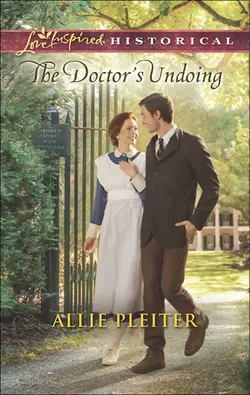The Doctor′s Undoing

Allie Pleiter
Тип: электронная книга
Жанр: Современная зарубежная литература
Язык: на английском языке
Стоимость: 458.46 ₽
Статус: В продаже
Издательство: HarperCollins
Дата публикации: 16.04.2024
Отзывы: Пока нет Добавить отзыв
О книге: Healing the Doctor′s HeartWhen Dr. Daniel Parker requested an army nurse to help with his orphanage, he expected an organized, sensible matron. Instead he gets young, beautiful, obstinate Ida Lee Landway, whose vibrant outlook and unrelenting optimism turn his work and his life inside out.Army life was easy compared to the discipline at her new workplace. Yet Ida is immediately smitten by the children in her care…and impressed by Daniel′s unfaltering dedication. Adding color and warmth to her new surroundings is one thing. Can she also help the good doctor embrace joy–and in so doing, find the family they both deserve?